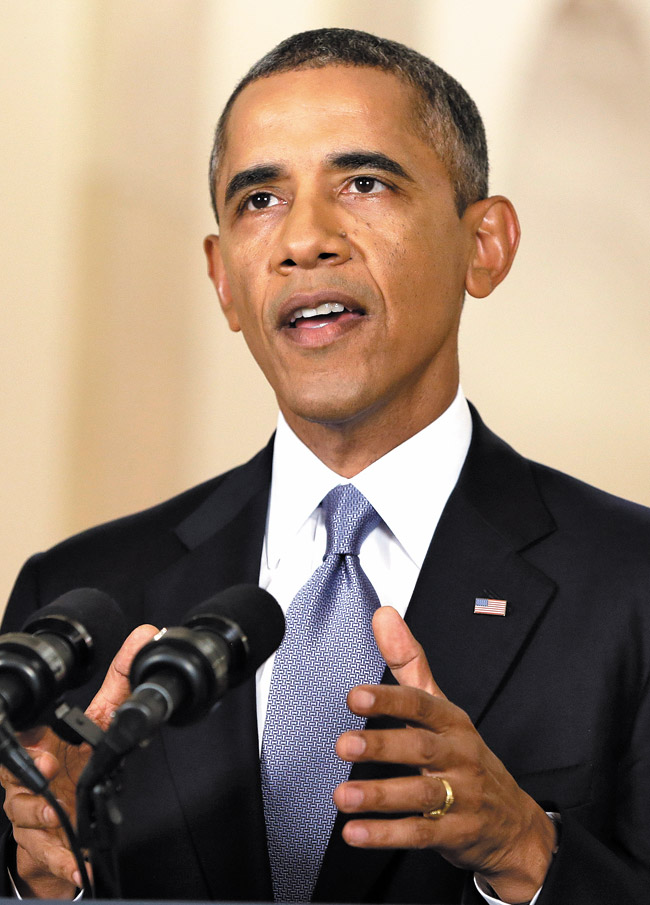Obama Handicapped By A Tin Ear
Barack Obama has always given a good speech. His address to the nation last Tuesday, on why American military action against Syrian dictator Bashar al-Assad is warranted, was no exception. It combined close, if occasionally flawed, reasoning, a forceful delivery and a moral argument based on “our sense of common humanity.”
Well … not quite. A good speech, but both alarming and weird as well.
Let’s start with the alarming.
Early in his remarks, Obama acknowledged that the United States “can’t resolve someone else’s civil war through force,” and late in his speech agreed with correspondents who’d written him that “we cannot be the world’s policeman.”
But in between and, most importantly, at its end, he tried to persuade us to do just that – to support a “targeted military strike to deter” Assad from using the poison gas sarin in the defense of his dictatorship.
That strike, Obama said, would not entail “boots on the ground” or become an “open-ended conflict” like Iraq or Afghanistan (from the first of which, he reminded us, he had extricated American forces, and from the second, he would by early next year).
But he gave it a Commander-in-Chief strut, nonetheless. This targeted strike wouldn’t be much, but neither would it be the “pinprick” some Obama’s critics have argued would be ineffectual, because “the United States military does not do pinpricks.”
What, then, is more than a “pinprick” but less than “boots on the ground?” A drone attack aimed at Assad’s bedroom? An attack of a dozen drones? Or of a plague of drones?
But what if they miss Assad’s bedroom (and Obama’s proven he isn’t always on target with his drones) and take out women and children and other non-combatants? That old human collateral damage we’ve come to know so well in Afghanistan and Iraq? That’s alarming, and might well offend someone else’s “sense of common humanity.”
Obama’s next to the last paragraph also was alarming: “Terrible things happen across the globe, and it is beyond our means to right every wrong. But when, with modest effort and risk, we can stop children from being gassed to death … I believe we should act. That’s what makes America different. That’s what makes us exceptional.”
And that’s what takes us to war – in Vietnam, in Afghanistan, in Iraq – “American exceptionalism.”
We’re different than the rest of the world’s nations.
We’re better.
We’re more moral.
We always act in the interest of justice and humanity.
More important, we have the means and the military might to do it, right, just, moral or not.
So we do.
In the process, we unleash more firepower than Vietnam’s combatants, Iraq’s religious factions or Afghanistan’s tribal bands could possibly muster. They bleed, and we bleed – wounded warriors, our treasure and our humanity.
The weirder part of the speech, however, was that even before its delivery it was a futile exercise.
Every poll leading up to Obama’s walk down that long White House hallway showed that the American people wanted nothing to with military action in Syria. They’d learned the lessons of the last 12 years of war even better than the man they’d elected twice to end them.
So had their Congressional representatives. As he spoke, Obama knew his request for Congressional authorization lacked the votes in Congress.
Now he waits for Russia’s ineloquent Vladimir Putin to save him – and us.






